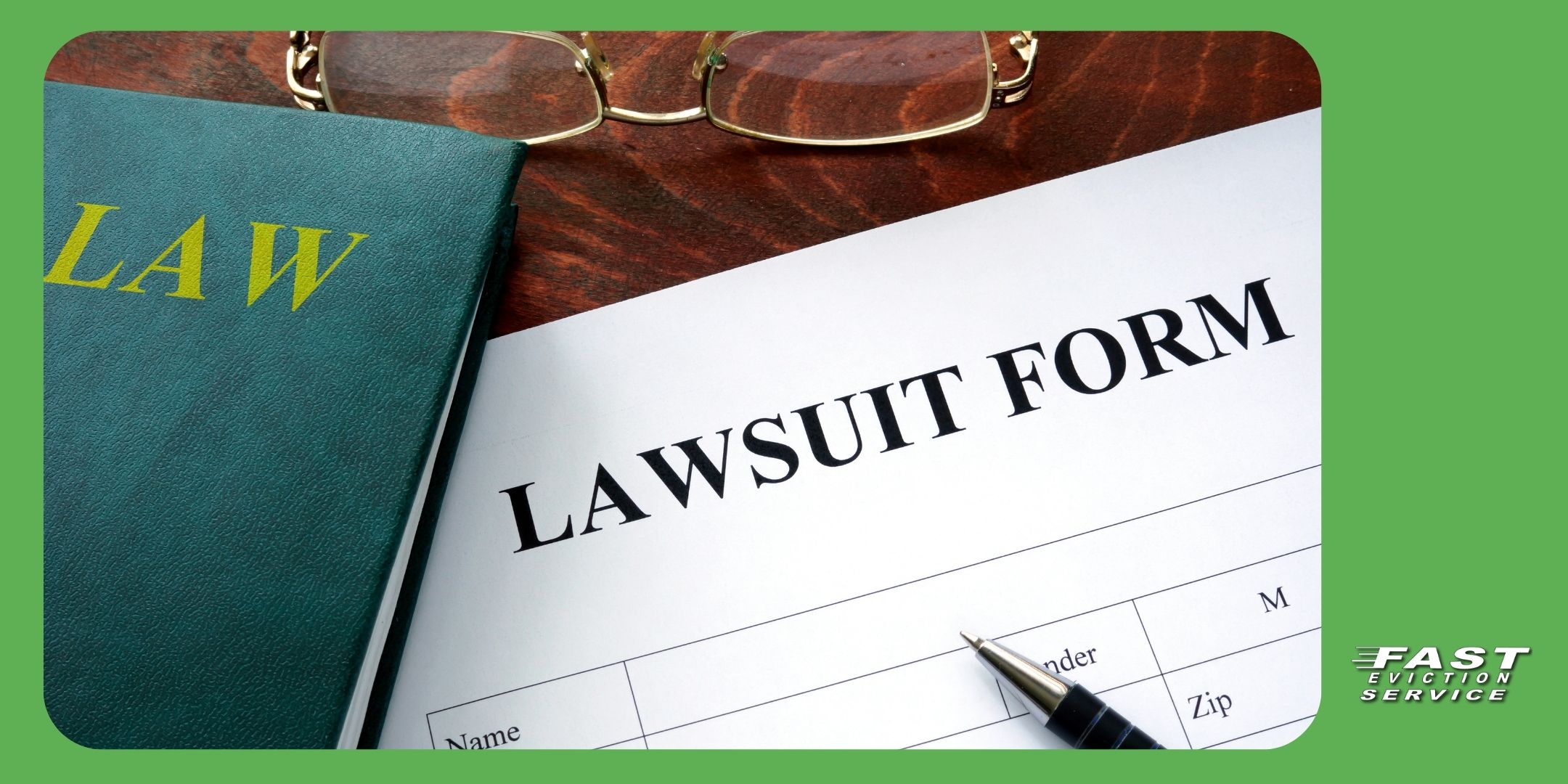Updated 5/08/24
Have you ever had an experience with unmanageable and difficult tenants; tenants who are rowdy, pay no heed to what you or your lease says and the tenant violates the lease agreement? Let’s discuss what to do when a tenant violates the lease.
Dealing with these types of tenants can be difficult especially if they are repeat offenders. Nobody is perfect; Landlords are bound to make a mistake and hand the keys over to a problematic tenant who slipped through the cracks. Even very good tenants slip up here and there and unknowingly violate the lease agreement.

Dealing with tenants violating leases shouldn’t be a one size fits all solution. Instead, approach it on an individual case basis. Sure, all lease violations should be addressed, but there are some violations that are less serious than others. I mean, are you really going to try to evict a tenant for a first time parking violation?
With that said, We should first discuss what should constitute a lease violation?
What is a tenant lease violation?
A lease violation is a breach of contract by the tenant. After thorough screening, the selected tenant is presented by the landlord with a lease agreement, or sometimes called a rental agreement. At the time of signing, a tenant should read and fully understand the clauses, or parts of the lease.
This is usually a good time for a tenant to request changes if something doesn’t quite look right or if they feel like they can’t adhere to a specific condition. This is also the part where tenants should ask questions and landlords make sure the tenant fully understands the consequences if the tenant violates the lease agreement.
Some lease violations might be more serious than others but at the end of the day you as the landlord should make sure that all violations have consequences.
What are the most common lease violations?
Now, as mentioned above, it is recommended to take each violation individually and assess it. Some questions that can help assess the violation to consider its seriousness are:
- Is this the first time it has happened with this specific tenant?
- When confronted about it, how did the tenant react? Defensive? Apologetic?
- How serious is the lease violation?
- Does the violation affect the well being or health of other tenants?
- Does the violation put your rental property in danger of serious damage?
- Do you see a repeating pattern of this specific violation with this and other tenants?
If you can consider the lease violation as non serious, such as a parking violation by one of your tenant’s guests, it can often be as simple as giving your tenant a call and letting them know that one of their guests has parked in a tenant reserved spot.
Unfortunately, not all situations will be that easy but we can list a few of the most common lease violations by tenants and some tips on how you could try and deal with them. We’ll start with less serious violations and work our way up.
Related: 3 Day Notice for Landlords and Tenants: What to Know and How to Act
Parking spot violations
A lot of times a tenant’s guest can find it easy to take the nearest empty spot to the building. They don’t often know there is assigned parking. Or even a tenant might take another spot because someone else is in their spot. Whatever the “reason” may be, it’s usually just a simple misunderstanding that can easily be fixed with a phone call.
If you see that a tenant just refuses to use their spot or randomly takes other tenant’s spots maliciously, then you can serve them with a 3 day notice to cure or quit. We’ll go over this notice in more detail later.
Noise Violations
Most standard leases include a noise clause. It usually states what is considered too noisy and it should include times where loud noises aren’t permitted. Remember that all tenants have the right to enjoy their dwelling. If you receive a complaint from a neighboring tenant, you should always try to do something about lease violations.
Sometimes a phone call to discuss the issue will solve the problem. A lot of times you’ll hear “I only did it because they had their music loud last night!” In that case, you should talk to both tenants and remind them that they signed the lease and they could face eviction if the noise issue persists.
NonPayment of Rent
Your lease should state how much is rent, when rent is due, what happens if rent is late and where and how the tenant is to pay rent. This lease violation can easily be on any part of this list. You’ll have chronic “forgetful” tenants who will always give you problems with paying their rent on time and you’ll have a legit tenant who’ll forget to pay their rent once a year.
All nonpayment of rent lease violations should be taken seriously and addressed immediately. If rent is due on the 1st, it is considered late on the second. You can try a phone call if it is the first time a certain tenant doesn’t pay their rent on time. If it’s a tenant who constantly gives you trouble, immediately serve a 3 day notice to pay or quit (or 15 day notice to pay or quit since the start of the COVID-19 pandemic).
Rogue Tenants/ Long Term Guests
Another situation to learn what to do when a tenant violates the lease is when a guest has overstayed their welcome. Sometimes this can just be a misunderstanding of the lease agreement. Some tenants remember what they want to remember and not what the actual clause states.
Having long term guests can be dangerous because it can lead to subletting and having people in your rental that you haven’t properly screened. When bringing it to the attention of your tenant, you will most likely be received by a “what’s the big deal?!” This is a perfect time to explain how it affects you, your insurance, the safety of neighbors and more.
If reasoning with your tenant fails, then you can serve them with a 3 day notice to cure or quit, or invite them to add the “guest” to the rental agreement, provided that they are willing to go through your screening process and accept other conditions your lease may have.
Pet Policy Violations
Do you have a pet policy in place? If you allow certain pets, a lot of times a tenant can confuse a “lap dog” with a Great Dane. It’s important to be as specific as possible if you allow pets. If you don’t allow pets, you must be careful when dealing with a “support animal” case. How do you handle these specific cases? Call your legal counsel or apartment association.
It’s sometimes as easy as having your tenant provide an additional deposit or a warning about your no pet policy. You can use a 3 day notice to cure or quit if your tenant refuses to cooperate.
Unauthorized Property Modifications
Most standard leases state that any modification to the rental property must be approved in writing by the landlord. Issues may arise when a tenant wants to paint an accent wall in the living room, change the locks to their front door, install a security camera, etc. The truth is, these are all violations of the lease agreement; no matter how big or small the modification is.
Again, most of the time these issues can be a simple misunderstanding. Sometimes though, they’re not. If you see that your tenant has modified a spare bedroom with equipment to grow marijuana (this happens a lot more than you’d think), you should probably serve them a cure or quit notice and the cops.
Property Damage
Property damage shouldn’t be taken lightly. A tenant who violates their lease damaging property most likely won’t get any better if the tenant doesn’t respect your property. You should start the eviction process immediately by serving them a cure or quit notice.
Illegal Use of Property/ Commercial Use
There are many legal issues to deal with when it comes to a tenant using your rental property as a place of business. That is not what it is intended for. They are violating the lease agreement and you should immediately serve a cure or quit notice to start the eviction process.
If you see that your tenant reacts to your notice and stops their commercial activity, good! If they don’t however, you should pursue legal action to remove them.
Illegal Use of Property/ Illegal Activity
Drugs, prostitution, gang avtivity is dangerous for you and your other tenants. Call the cops and serve a cure or quit notice immediately to start the eviction process.
Tenant Lease Violation Notices
Please make sure there haven’t been any changes to how notices work in California before proceeding to serve notices. For example, AB3088 now says a 15 day notice to pay or quit must be served, not a 3 day notice.
There are 2 types of notices that must be served to a tenant to officially and legally start the eviction process when dealing with lease violations. The first one we’ll discuss is called a “Cure or Quit Notice”.
A cure or quit notice is a notice that tells the tenant he or she has violated the lease agreement and must either fix the issue at hand or give up possession of the rental property. This notice is used for any violation of the lease that does not deal with monies owed to the landlord or utility companies.
A Notice to Pay or Quit is exactly that. It is served when a tenant either fails to pay rent on time or fails to pay a utility bill.
When serving either of these two notices, a copy must be served to the tenant either by personally delivering it to the tenant, serving it to someone else in the household who is at least 18 years old, or posting a copy on their front door and mailing a copy. This would be the first official step in evicting your tenant.
Keep a detailed record
You want to keep as many details on record as you possibly can. As more and more violations occur for a specific tenant, you’ll most likely end up in eviction court pleading your case to a judge. The more drama you have on record, the better! Police reports, pictures (printed), copies of tenant lease violation notices, printed emails or text messages if your tenant is verbally abusive or threatening you, dates, times and witnesses of violations.
Knowing what to do when a tenant violates the lease is a very important part of being a landlord. Lease violations are quite common in the industry. Some are easier to deal with than other violations but they should all be dealt with, without a doubt.
Making sure your tenant fully understands the lease they signed when they moved in and fully understanding the consequences of failing to follow it should be top priority for you. Another important thing to keep in mind: If it’s not in the lease, it’s not considered a violation.
If you have any questions regarding tenants violating lease agreements, what your lease should cover or what to do when a tenant violates the lease, please contact us for a consultation.




